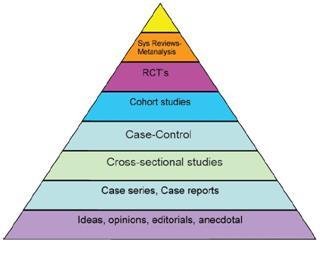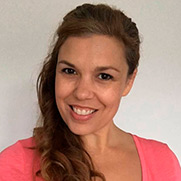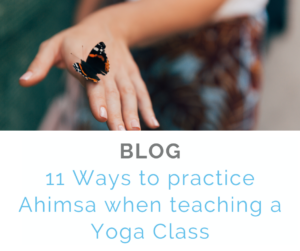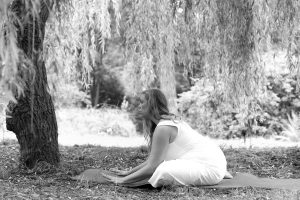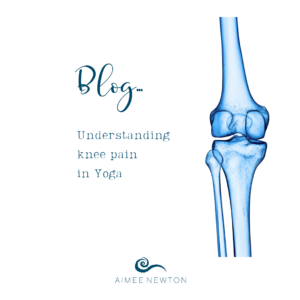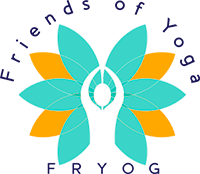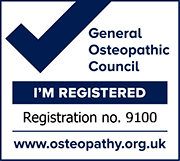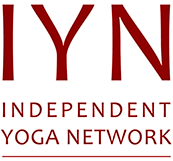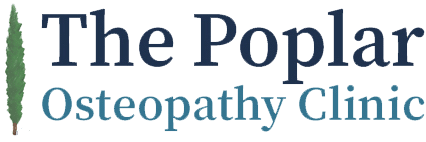Everyone who has ever practiced or taught yoga can tell you how good it made them feel both physically and mentally; balanced, centred and healthy. There are many success stories from people using yoga to manage all sorts of illnesses and injuries. I don’t really need to tell you this, you know the truth if you have ever had a regular practice.
Personally the benefits of my practice are palpable and have far reaching consequences into my everyday life. I encourage all my osteopathic patients to try Hatha Yoga so they can experience the same. My yoga students also express the same beneficial results; they arrive and can’t wait to lie in Shavasana. After a stressful day they leave the class glowing in their new found balanced state of body and mind.
The hard part is that it’s nearly impossible to quantify these benefits; subjective experience cannot really be measured accurately and this anecdotal evidence, however tried and tested, is not considered proof in any medical or scientific arena. It’s considered poor evidence and situated at the bottom of a hierarchy of research.
https://maggiemcneill.files.wordpress.com/2013/08/hierarchy-of-evidence.jpg
The claims made in every yoga textbook or teaching manual on the benefits of yoga are wide reaching and a lot of the time do not reference where they get there evidence from. My assumption is that it has been passed down from “guru to disciple”. In some cases it’s an educated logical assumption but I feel that some of the claims are far-fetched and potentially unfounded without any actual evidence.
An example of this could be found in most yoga books, I am going to use an example from one of my favourite books, APMB by Swami Satyananda Saraswati published by Bihar. I would like to make it clear that I love this book, it’s been extremely useful to me especially when I was a newly qualified teacher. But there is no referencing throughout the entire thing or any acknowledgement of how they know the things they publish, and this is not limited to Bihar publications, I urge you to look at any books you have and find out for yourself.
Now I have faith that there is research out there from The Yoga Research Foundation (http://www.sypublications.com/en/satyananda-yoga/yoga-research-foundation.html) but unfortunately faith is not enough if you want to convince healthcare professionals of the benefits.
Here’s an example about their reported benefits of Sirshasana or Headstand
- “relieves anxiety and other psychological disturbances”
- “recommended for the prevention of asthma, hay fever, diabetes and menopausal imbalance”
- “rectify many forms of nervous or glandular disorder”
- “relieve strain on the back and aid tissue regeneration”.
I know that using headstand as an example is quite extreme but it is just an illustration, the same could be said for any of their claims throughout the book. I am not saying that these things don’t happen but that the authors have not reported how, or why you get these benefits; specifically they omit where the scientific evidence has come from to support these claims. In my role as a healthcare professional if I went around advertising I could achieve these results I would be in big trouble with The General Osteopathic Council, the governing body for Osteopaths for issues regarding false advertising to patients. How as yoga teachers are we any different? Just because we are not currently regulated with such rigour, does it mean we can make claims like this without evidence? Is it ethical?
So how do we prove the benefits of yoga to medical professionals and why does it even matter in the first place? We know how good it is, so what does it matter if the scientific and medical community believe us or not?
We need to use our discriminative intelligence; maybe applying the principles of Jnana Yoga to yoga itself. Just because a benefit of an asana is published in a book or the information comes from a trusted guru or Swami it doesn’t mean it’s true, you need to decide for yourself.
We need to ask ourselves “how do they know that? Can that be backed up with evidence? Have I experienced that for myself?”
Without this discriminative intelligence being applied to yoga, as a profession we may look incompetent. Potentially it could harm the reputation of yoga and ultimately could be an obstacle to the referral of people to this amazing practice by doctors and other healthcare practitioners; alienating people who may benefit from a regular practice.
The way I look at this is to think of the amount of people who could benefit from yoga if it was supported by all GP’s and the NHS. Imagine if cardiac rehabilitation wards taught yoga for people with heart disease, or if all those with high blood pressure learnt certain yoga practices. What effect that could have on the use of pharmaceuticals? Alternatively think about all those suffering from anxiety and stress, what if they were prescribed a yoga practice? Getting the medical profession on board is the first step to helping all those people.
Scientific research has many problems when trying to address something as varied and subjective as yoga, however there is an immense amount of yoga research beginning to emerge meaning there is no need to rely on the anecdotal evidence anymore.
The real challenge for yoga teachers is navigating the world of evidence-based medicine; even understanding what the thousands of published research articles on yoga even mean is difficult and there are thousands of papers on the effects of yoga on all sorts of conditions and this number growing every day.
So the first step really is to understand exactly what a research paper is and how to read one – I have attached a link to a video that goes through how to read a research article and is a really good starting point
Once you have a basic understanding then it’s a matter of finding a paper that interests you; Yoga Alliance have a great repository of information to get you started …
https://www.yogaalliance.org/Learn/About_Yoga/Yoga_Research
For any questions regarding yoga research or to explore this further please contact me to directly I would be willing to provide a CPD in more detail about yoga research if there is enough interest as I think this is very important for improving the credibility of our profession.
Namaste

